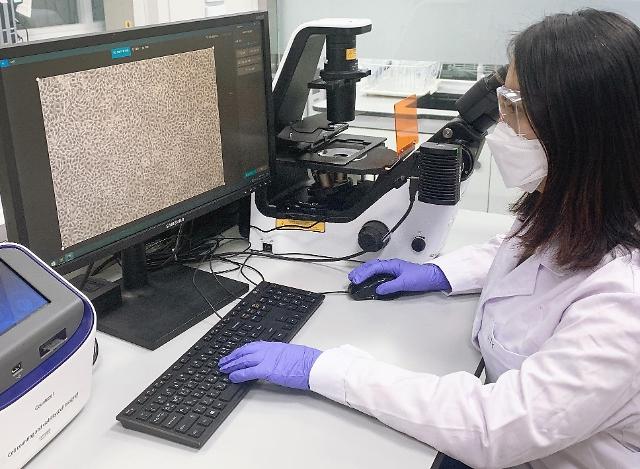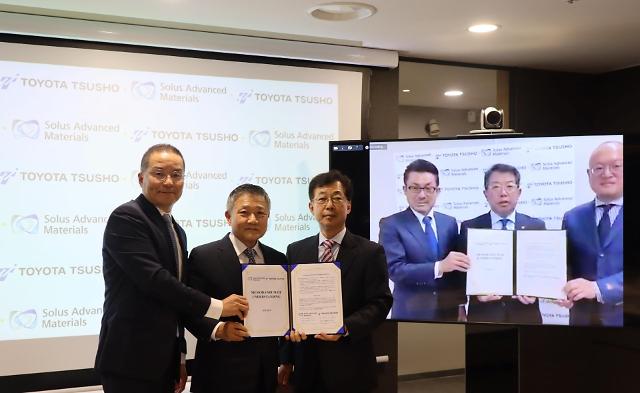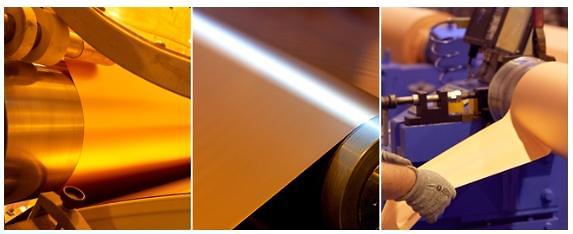
[Courtesy of Solus Advanced Materials]
SEOUL -- Solus Advanced Materials, a South Korean provider of electronic components and biomaterials, has launched a project to develop a key biomaterial for the delivery of messenger RNA (mRNA) vaccines. The project comes on the heels of active efforts by South Korean companies to acquire core technologies for COVID-19 vaccines.
The novel coronavirus is studded with proteins that it uses to enter human cells. Spike proteins make a tempting target for potential vaccines and treatments. DNA vaccines transfect a specific antigen-coding DNA sequence onto the cells of an immunized species, while mRNA vaccines teach cells how to make a protein that triggers an immune response for the production of antibodies.
Solus will develop a type of phospholipid that constitutes lipid nanoparticles (LNPs) that are essential in maintaining the effectiveness of mRNA vaccines. The company aims to commercialize a vaccine transporter with superior safety and efficacy by adding technology from Sunbio, a domestic biotech company that supplies vaccine delivery biomaterials to Pfizer, an American pharmaceutical corporation.
Solus said it would diversify its vaccine delivery pipeline by increasing the utilization of its product through open innovation. The new biomaterial being developed by Solus and Sunbio will be used for mRNA vaccines and next-generation anticancer drugs by maximizing drug delivery effects and minimizing side effects.
"With differentiated technology that has been accumulated in developing lipid-based biomaterials for 30 years, we are able to enter the mRNA vaccine raw material market in a timely manner," Solus' bio business division head Choi Yong-jin said in a statement on September 29. "Through open innovation, the green light has been turned on for the diversification of bio-business portfolios and the localization of key vaccine raw materials."
South Korea has launched a special government-sponsored consortium to develop a next-generation mRNA vaccine platform. The consortium would establish a vaccine production and export base and use its mRNA platform to develop anti-cancer vaccines and next-generation innovative drugs. President Moon Jae-in has emphasized the importance of securing vaccine sovereignty through the quick development of homemade vaccines.
Copyright ⓒ Aju Press All rights reserved.




View more comments